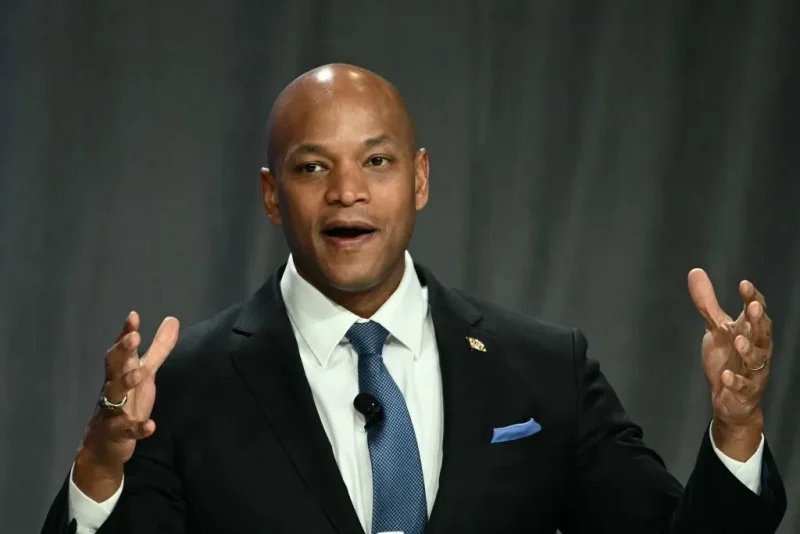
OAN Staff James Meyers
3:08 PM – Monday, May 19, 2025
Maryland Democrat Governor Wes Moore announced that he has vetoed a state-approved bill to create a commission to study and recommend reparations based on racial discrimination and past years of slavery.
Historically, Maryland formally codified slavery in 1664, passing laws that bound African slaves and their descendants to servitude for life. Prior to that, Africans in Maryland—like in other colonies—were often indentured servants who could eventually gain freedom.
Meanwhile, in a veto letter sent on Friday, Moore cited multiple commissions that the Old Line State has already approved, including the Maryland Lynching Truth and Reconciliation Commission.
“I will always protect and defend the full history of African Americans in our state and country,” Moore wrote in his letter. “But in light of the many important studies that have taken place on this issue over nearly three decades, now is the time to focus on the work itself: Narrowing the racial wealth gap, expanding homeownership, uplifting entrepreneurs of color, and closing the foundational disparities that lead to inequality — from food insecurity to education.”
“We have moved in partnership with leaders across the state to uplift Black families and address racial disparities in our communities,” Moore said. “That is the context in which I’ve made this difficult decision. Because while I appreciate the work that went into this legislation, I strongly believe now is not the time for another study. Now is the time for continued action that delivers results for the people we serve.”
The bill, which is considered a high priority of the Legislative Black Caucus of Maryland, detailed a host of potential reparations — including apology statements, financial compensation, debt forgiveness and tuition payment.
The bill was passed in April after a 101-36 vote in the state’s House.
Soon after, the move by Moore was highly criticized by the Legislative Black Caucus.
“At a time when the White House and Congress are actively targeting Black communities, dismantling diversity initiatives, and using harmful coded language, Governor Moore had a chance to show the country and the world that here in Maryland we boldly and courageously recognize our painful history and the urgent need to address it,” the group said in the statement.
“Instead, the state’s first Black governor chose to block this historic legislation that would have moved the state toward directly repairing the harm of enslavement.”
Democrat politicians from other states, such as California, Colorado, Massachusetts, New York, and Illinois — have all similarly introduced efforts to pass slavery reparations, which they argue could make up for the dark history of slavery.
However, the Democrat Party, founded in the 1820s under President Andrew Jackson, was founded on pro-slavery policies, particularly in the Southern states. Many Democrats in the South defended slavery as a necessary institution and opposed efforts to abolish or limit its expansion.
Although no federal reparations legislation has been enacted to date, Senator Cory Booker (D-N.J.) and Representative Ayanna Pressley (D-Mass.) have reintroduced H.R. 40—a bill originally proposed in 1989—that would establish a federal commission to study the lasting effects of slavery and explore potential remedies.
Stay informed! Receive breaking news blasts directly to your inbox for free. Subscribe here. https://www.oann.com/alerts
What do YOU think? Click here to jump to the comments!
Sponsored Content Below

